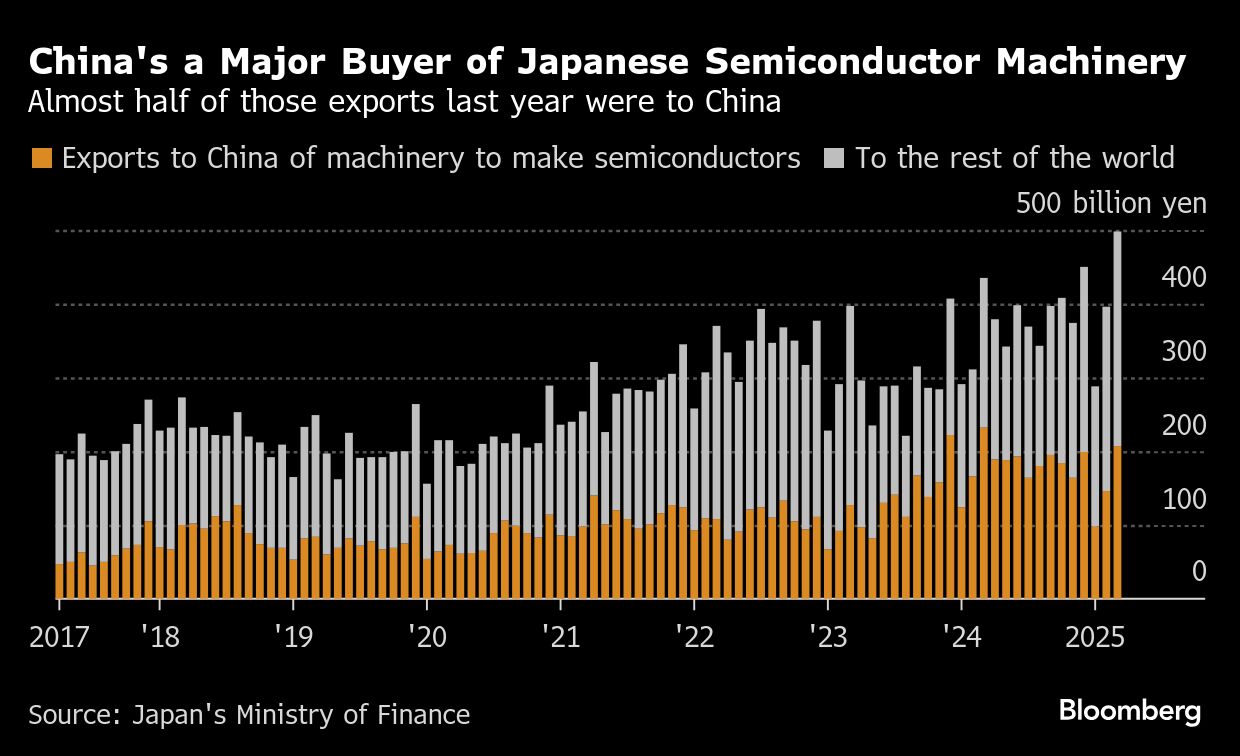
President Donald Trump said negotiators made “big progress” in trade talks with Japanese representatives seeking exemptions from the levies slapped on US trading partners.
“A Great Honor to have just met with the Japanese Delegation on Trade. Big Progress!” Trump posted Wednesday on his social media site following the meeting.
The talks did not result in an immediate halt to the tariffs, but preparations are underway for a second round of talks to take place later this month, Japan's lead negotiator Ryosei Akazawa said in Washington on Wednesday.
He had met with Trump for 50 minutes, and then with US negotiators from the US Treasury and Commerce Departments for 75 minutes.
“Both sides will engage in frank and constructive discussions and aim to reach a swift agreement,” he said, adding that it appeared the US was seeking a deal before the end of the 90-day reprieve of the so-called reciprocal tariffs.
He also declined to elaborate on whether security issues had been discussed, but confirmed that currencies were not part of the talks — a key point that market participants were watching for signs of pressure from the US to strengthen the yen.
The Japanese currency weakened against the dollar, losing as much as 0.5% in the initial minutes after Akazawa said it wasn't a topic.
Although the yen's one-month implied volatility has eased after touching the highest since January 2023 last week, option skews indicated that demand for options to hedge against a drop in dollar-yen in the coming month remained stronger than for options to bet on an increase.
While Akazawa didn't confirm it, Kyodo News reported that Trump raised the issue of Japan spending more on defense in Wednesday's talks.
Foreign capitals are racing to negotiate deals with the US to avert high import taxes Trump imposed — and then quickly paused — on about 60 trading partners. That move put a 24% across-the-board tariff on Japanese imports on hold, though a 10% baseline charge still applies — as well as 25% levies on cars, steel and aluminum.
The Japan talks are being closely watched as a test case for other nations looking to cut their own deals amid uncertainty over what concessions Trump will seek to extract.
Treasury Secretary Scott Bessent has said he envisions reaching agreements with military ally Japan and other US partners to harness a collective effort to apply economic pressure on China.
Trump said in a social media post that he also had a “very productive call” Wednesday with Mexican President Claudia Sheinbaum. He is also slated to meet with Italian Prime Minister Giorgia Meloni on Thursday in Washington as she seeks tariff relief.

In a sign of how the tariffs are already having an impact, Honda Motor Co. plans to move production of its hybrid Civic to the US in response to Trump's duties on imported cars. Japanese exports to the US also rose at a slower pace in March, with the outlook growing increasingly uncertain as Trump steps up his tariff push, data on Thursday showed.
Japan's shipments of semiconductor machinery hit a record last month, with more than 40% bound for China — underscoring the dilemma US allies like Tokyo face amid pressure from the Trump administration to curb trade with Beijing.
Japan is expected to offer the US a broad deal as it urges Trump to drop the 24% duty the US announced, and later paused, on Japanese goods. In a February meeting with Trump, Prime Minister Shigeru Ishiba promised to buy more American liquefied natural gas and raise investment in the US to $1 trillion.
Ishiba has also touted Japan's standing as the biggest investor in America, including factories built by Japan's automakers that have created US jobs, and said the tariffs will diminish the capacity for Japan to invest in the US.
The de facto 90-day time limit for the tariff suspension will likely weigh on the talks, especially as the Trump administration tracks the public mood with an eye on securing concrete results ahead of next year's mid-term elections, former Japanese cabinet member Hideki Makihara said.
“Taking time to reach a deal could be a dampener. I think it would be good for Japan to see the 90-day timeframe as a crucial element of the talks,” he added.
“From our side we do want things to progress as fast as possible,” said Akazawa. “But it's impossible to tell how the negotiations will go.”
Essential Business Intelligence, Continuous LIVE TV, Sharp Market Insights, Practical Personal Finance Advice and Latest Stories — On NDTV Profit.





















